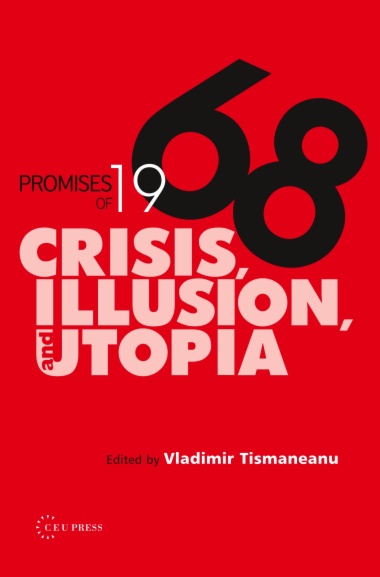This book is a state of the art reassessment of the significance and consequences of the events associated with the year 1968 in Europe and in North America. Since 1998, there hasn't been any collective, comparative and interdisciplinary effort to discuss 1968 in the light of both contemporary headways of scholarship and new evidence on this historical period. A significant departure from earlier approaches lies in the fact that the manuscript is constructed in unitary fashion, as it goes beyond the East–West divide, trying to identify the common features of the sixties. The latter are analyzed as simultaneously global and local developments. The main problems addressed by the contributors of this volume are: the sixties as a generational clash; the redefinition of the political as a consequence of the ideological challenges posed to the status-quo by the sixty-eighters; the role of Utopia and the de-radicalization of intellectuals; the challenges to imperialism (Soviet/American); the cultural revolution of the sixties; the crisis of 'really existing socialism' and the failure of "socialism with a human face"; the gradual departure from the Yalta-system; the development of a culture of human rights and the project of a global civil society; the situation of 1968 within the general evolution of European history (esp. the relationship of 1968 with 1989). In contrast to existing books, it provides a fundamental and unique synthesis of approaches on 1968: first, it contains critical (vs. nostalgic) re-evaluations of the events from the part of significant sixty-eighters; second, it includes historical analyses based on new archival research; third, it gathers important theoretical re-assessments of the intellectual history of the 1968; and fourth, it bridges 1968 with its aftermath and its pre-history, thus avoiding an over-contextualization of the topics in question.
- Cover
- Title page
- Copyright page
- Table of Contents
- Introduction
- Part One Picking Up the Pieces:1968 Between Memory and Theory
- Revolutions and Revolutionaries, Lessons of the Years of Crises (Three Czech Encounters with Freedom)
- 1968 in Poland: Spoiled Children, Marxists, and Jews
- In Search of a New Left
- Rethinking the Political Scientifically: Brief Reflectionson 1968 by a Child of the Seventies
- What Did They Think They Were Doing? The Political Thought of (the West European) 1968 Revisited
- Thinking Politically: Raymond Aron and the Revolution of 1968 in France
- The Divided Spirit of the Sixties
- Part Two Lessons and Legacies of 1968
- The Year 1968 and Its Results: An East European Perspective
- The Prague Spring 1968: Post-Communist Reflections
- From Revisionism to Dissent: The Creation of Post-Marxism in Central Europe after 1968
- Post-Marxist Mentality and the Intellectual Challenge to Ideology after 1968
- Yugoslavia’s 1968: The Great Surrender
- 1968 Romania: Intellectuals and the Failure of Reform
- Part Three 1968 in Pieces: Case Studies of Transformation
- Betrayed Promises: Nicolae Ceauşescu, the Romanian CommunistParty, and the Crisis of 1968
- The Kremlin, the Prague Spring, and the Brezhnev Doctrine
- 1968 and the Terrorist Aftermath in West Germany
- The Prague Spring: Resistance and Surrender of the PCI
- “Don’t Push Us, Comrade!”—De Gaulle in Bucharest
- Conclusion: 1968—Did It Matter?
- Contributors
- Index
- back cover

